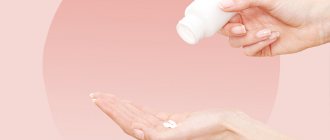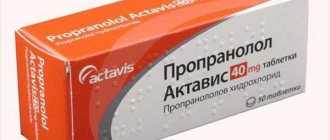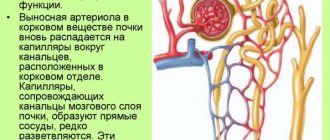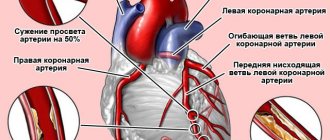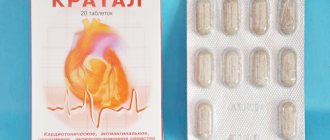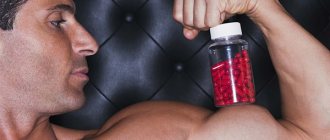Manufacturer: NOW International (USA)
Active ingredients
- Not indicated. See instructions
Pharmacological action
- Not indicated. See instructions
- Description of the pharmacological action of Natural Beta-Carotene
- Composition Natural Beta-Carotene
- Indications for use of the drug Natural Beta-Carotene
- Release form of the drug Natural Beta-Carotene
- Contraindications to the use of the drug Natural Beta-Carotene
- Method of administration and dosage of the drug Natural Beta-Carotene
- Precautions when taking Natural Beta-Carotene
- Special instructions when taking Natural Beta-Carotene
- Storage conditions for the drug Natural Beta-Carotene
- Shelf life of the drug Natural Beta-Carotene
Indications for use
— Prevention of cardiovascular and cancer diseases. — Prevents thrombus formation and promotes the resorption of blood clots, exhibits anti-atherosclerotic activity. — Reduced immune status of the body, as well as environmentally unfavorable living conditions. — Vitamin deficiency and hypovitaminosis. — Eye diseases (retinitis pigmentosa, xerophthalmia, keratomalacia, etc.). — Lesions and diseases of the skin, mucous membranes (frostbite, burns, trophic ulcers, extensive wounds, eczema, neurodermatitis, etc.). — Beta carotene is indicated for chronic diseases of the lungs and bronchi. — Inflammatory, erosive and ulcerative lesions of the gastrointestinal tract, cirrhosis of the liver. — Prevention of the formation of stones in the biliary and urinary systems.
Lack of provitamin
With a lack of provitamin, the human body is especially susceptible to immune and viral diseases. A lack of beta-carotene can manifest itself not only in internal malfunctions of the body, but also be visible, in particular, on the skin. If there is a shortage of an element, the following symptoms can be observed:
- inhibition of the growth of the child’s body;
- dullness and fragility of hair;
- peeling nail plate;
- dry and flaky skin;
- acne or acne;
- decreased immunity;
- deviations in reproductive processes;
- dry mucous membranes due to microflora disturbances;
- weakened vision.
Such indications give reason to think about a serious deficiency of provitamin, which must be replenished.
Best before date
24 months
Vitamins with similar effects
- St. John's wort-Hypericum-Artlife (Capsule)
- Green Magic (Capsule)
- Immun44 syrup (Syrup)
- IMMUNOSTART Life formula (Lozenges)
- Yogi Ginseng Vitality (Herbal tea)
- Yogi-T Bedtime (Herbal tea)
- Yogi-T Womens Moon Cycle (Herbal tea)
The description of Vitamin Natural Beta-Carotene is intended for informational purposes only. Before starting to use any drug, it is recommended to consult a doctor and read the instructions for use. For more complete information, please refer to the manufacturer's instructions. Do not self-medicate; EUROLAB is not responsible for the consequences caused by the use of information posted on the portal. Any information on the project does not replace consultation with a specialist and cannot be a guarantee of the positive effect of the drug you use. The opinions of EUROLAB portal users may not coincide with the opinions of the site Administration.
Are you interested in Vitamin Natural Beta-Carotene? Do you want to know more detailed information or do you need a doctor's examination? Or do you need an inspection? You can make an appointment with a doctor - the Euro lab is always at your service! The best doctors will examine you, advise you, provide the necessary assistance and make a diagnosis. You can also call a doctor at home . Euro lab clinic is open for you around the clock.
Attention! The information presented in the vitamins and dietary supplements section is intended for informational purposes and should not be a basis for self-medication. Some of the drugs have a number of contraindications. Patients need to consult a specialist!
If you are interested in any other vitamins, vitamin-mineral complexes or dietary supplements, their descriptions and instructions for use, their analogues, information about the composition and form of release, indications for use and side effects, methods of use, dosages and contraindications, notes about the prescription of the drug for children, newborns and pregnant women, price and consumer reviews, or you have any other questions and suggestions - write to us, we will definitely try to help you.
Beta carotene
Beta-carotene is a red-orange plant pigment that is a precursor to vitamin A and has strong antioxidant properties. A deficiency of beta-carotene leads to a lack of vitamin A, and an excess leads to carotenoderma.
Synonyms Russian
Beta carotene; provitamin A.
English synonyms
Beta-Carotene; Betacarotenum; Provitamin A; Trans-beta-carotene.
Research method
High performance liquid chromatography.
Units
ng/ml (nanograms per milliliter).
What biomaterial can be used for research?
Venous blood.
How to properly prepare for research?
- Eliminate alcohol from your diet 24 hours before the test.
- Do not eat for 8 hours before the test; you can drink clean still water.
- Avoid physical and emotional stress 30 minutes before the test.
- Do not smoke for 3 hours before the test.
General information about the study
Beta-carotene is the most well-known and common form of provitamin A. It differs from other carotenoids by the presence of beta rings at the ends of the molecule. This is a powerful antioxidant that protects cells from the damaging effects of free radicals, has immunostimulating and adaptogenic properties, prevents neoplasms and cardiovascular diseases, supports regenerative processes in the epithelium of the skin and mucous membranes, and ensures the formation of the visual pigment rhodopsin.
Beta-carotene is a red-orange plant pigment and is used as a food coloring E160a. Its sources: pumpkin, carrots, sweet potatoes, green onions, sorrel, spinach, lettuce, lettuce, romaine lettuce, kale, tomatoes, red peppers, broccoli, grapefruits, plums, peaches, melons, apricots, persimmons, gooseberries, blueberries, black currant.
This provitamin is fat soluble, so its absorption is enhanced when consumed with lipids. In the small intestine, beta-carotene is absorbed by 9-22%, the degree of absorption depends on the type of food product in which it is contained, its food processing, the combined use of fats and oils, vitamin A and beta-carotene reserves in the body. The daily requirement for beta-carotene is 2-7 mg. Digestive disorders, pathologies of the pancreas, liver and small intestine lead to a decrease in the absorption of provitamin from food.
Signs of insufficient beta-carotene intake and vitamin A deficiency include bone and tooth problems, dry and irritated eyes, hair loss, decreased appetite, skin rashes, recurrent infections and impaired night vision (“night blindness”).
Unlike vitamin A, beta-carotene in high doses does not have toxic properties and does not cause hypervitaminosis, since only the amount of vitamin needed by the body is converted into retinol, and the excess accumulates in adipose tissue. Excessive consumption of plant foods or dietary supplements containing carotene results in carotenoderma, a harmless condition characterized by a yellow-orange skin tone due to the accumulation of carotenoids in the epidermis.
In smokers, consuming high doses of beta-carotene may increase the risk of developing lung cancer. Nicotine is thought to interfere with his metabolism. The negative effect of taking higher doses of beta-carotene is observed only in people with nicotine dependence and previous long-term exposure to asbestos and is associated with an increase in the incidence of prostate cancer, stroke and mortality from cardiovascular disorders. In non-smokers, beta-carotene intake, on the contrary, leads to a reduced risk of cancer.
This provitamin is used to treat erythropoietic protoporphyria (sensitivity to sunlight), as well as to reduce the risk of breast cancer and age-related macular degeneration. Long-term intake of beta-carotene helps prevent age-related decline in mental abilities.
What is the research used for?
- To diagnose a deficiency or excess of beta-carotene in the body;
- for differential diagnosis of jaundice;
- for the diagnosis of fat malabsorption syndrome.
When is the study scheduled?
- If the skin turns yellow and carotenoderma is suspected;
- with clinical signs of vitamin A deficiency;
- with malabsorption (with celiac disease, cystic fibrosis, liver cirrhosis, chronic pancreatitis);
- with steatorrhea (increased fat content in the stool due to their insufficient absorption in the intestines).
What do the results mean?
Reference values: 100 - 850 ng/ml.
Causes of increased beta-carotene levels
- Its excessive consumption with food or food additives (leads to carotenoderma - yellowing of the skin).
A high level of beta-carotene in the blood excludes fat malabsorption syndrome.
Reasons for low beta-carotene levels
- Insufficient consumption of foods containing beta-carotene.
- Impaired fat absorption due to: liver cirrhosis, liver failure;
- exocrine pancreatic insufficiency;
- cystic fibrosis;
- celiac disease;
- duodenal anastomosis;
- intestinal helminthiasis (for example, giardiasis).
What can influence the result?
The level of beta-carotene in the blood decreases:
- with liver and kidney failure;
- in case of impaired digestion and absorption of fats due to pancreatic insufficiency, malabsorption syndrome;
- when taking medications that interfere with the absorption of beta-carotene from food into the blood (fatty acid sequestrants (cholestyramine), weight loss medications (orlistat), proton pump inhibitors, mineral oil);
- when drinking alcohol, smoking.
The level of carotenoids can be increased with hypothyroidism, hyperlipidemia due to diabetes mellitus, myxedema, chronic nephritis, and the use of drugs and nutritional supplements containing beta-carotene.
Important Notes
The simultaneous use of synthetic beta-carotene and alcohol interferes with the conversion of provitamin A to retinol and has a toxic effect on the liver.
Also recommended
- Vitamin D, 25-hydroxy (calciferol)
- Vitamin A (retinol)
- Vitamin E (tocopherol)
- Vitamin K (phylloquinone)
- Fat-soluble vitamins (A, D, E, K)
- Coprogram
- Bilirubin and its fractions (total, direct and indirect)
Who orders the study?
Therapist, pediatrician, ophthalmologist, gastroenterologist, dermatologist.
Literature
- Fischbach FT, ed. Manual of Laboratory & Diagnostic Tests. 7th ed. Philadelphia, Pa: Lippincott Williams & Wilkins; 2004.
- Goralczyk R. Beta-carotene and lung cancer in smokers: review of hypotheses and status of research. Nutr Cancer. 2009 Nov; 61(6):767–74.
- Krinsky NI, Johnson EJ. Carotenoid actions and their relation to health and disease. Mol Aspects Med. 2005 Dec;26(6):459-516.
- Leo MA, Lieber CS. Alcohol, vitamin A, and beta-carotene: Adverse interactions, including hepatotoxicity and carcinogenicity. Am J Clin Nutr. 1999;69(6):1071-1085.
- “Norms of physiological needs for energy and nutrients for various groups of the population of the Russian Federation” MR 2.3.1.2432-08.
Overdose
Hypercarotenemia is an overdose of provitamin, which is extremely rare. Unlike retinol, beta-carotene is low-toxic, and an excess of the substance can lead to serious consequences only in exceptional cases. Most often, an excess of the element is not considered a serious danger, although it can lead to yellowing of the skin.
Carotenemia can be observed with excessive consumption of carrots, but in a healthy body this will also not cause a dangerous condition.
Daily intake for women, men, children
Table:
| Age | Men | Women |
| from 1 year to 8 years | 700 mcg | 650 mcg |
| From 9 to 18 years old | 2500 mcg | 2000 mcg |
| from 19 years old | 5000 mcg | 4500 mcg |
Beta-carotene is a substance whose need increases during physical activity, sports, during pregnancy and lactation. It is more advisable to eat not pure vitamin A, as it can contribute to hypervitaminosis, but beta carotene containing it.
